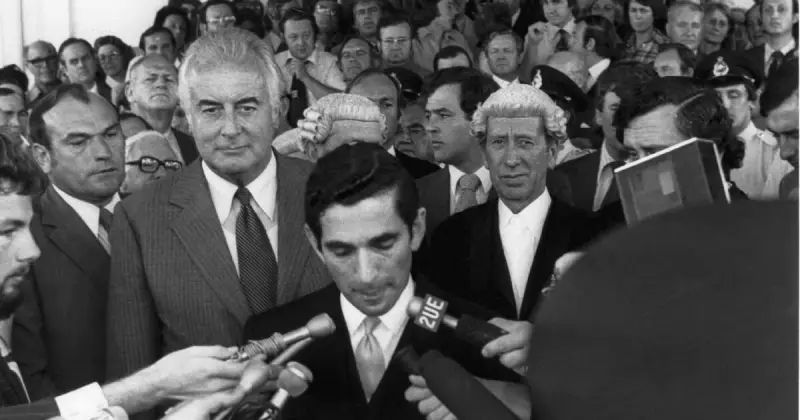
Nearly five decades have passed, yet the political earthquake that rocked Australia on November 11, 1975, continues to send tremors through the nation's democratic foundations. The dramatic dismissal of Prime Minister Gough Whitlam by Governor-General Sir John Kerr remains one of the most controversial moments in Australian history.
A Day That Changed Australian Politics Forever
The constitutional crisis unfolded during a period of intense political deadlock. The opposition-controlled Senate had taken the unprecedented step of blocking supply bills, effectively cutting off government funding. This bold move created a stalemate that threatened to paralyze the nation's governance.
Governor-General Sir John Kerr, exercising his reserve powers, made the fateful decision to remove the democratically elected Prime Minister without warning. In a stunning political coup, Kerr commissioned opposition leader Malcolm Fraser as caretaker Prime Minister, triggering an immediate double dissolution election.
Democracy's Fragile Nature Exposed
The events of 1975 revealed critical vulnerabilities in Australia's democratic system. The dismissal demonstrated how constitutional conventions and unwritten traditions could be overturned by the exercise of rarely-used powers. It raised fundamental questions about where ultimate political authority truly resides in a modern democracy.
Professor Jenny Hocking, who fought a landmark legal battle to access the ‘Palace Letters’ between Kerr and the Queen, emphasizes the lasting significance of these events. Her research confirmed what many had long suspected: that the monarchy was more involved in the crisis than previously acknowledged.
Enduring Lessons for Contemporary Australia
The Whitlam dismissal serves as a permanent cautionary tale about the fragility of democratic institutions. It reminds Australians that constitutional safeguards are only as strong as the commitment of those who wield power to uphold democratic principles.
As political tensions continue to surface in modern Australian politics, the events of 1975 stand as a powerful reminder that democracy requires constant vigilance. The dismissal continues to spark debate among historians, legal scholars, and political observers about the proper limits of executive power and the protection of democratic norms.
Nearly half a century later, the Whitlam dismissal remains not just a historical event, but a living lesson in the delicate balance of power that sustains Australian democracy.





